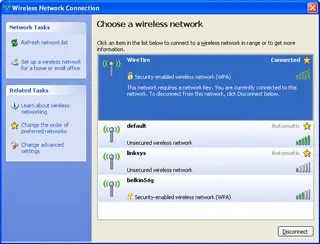LabRats #007: Connecting through thin air
A wireless network has quite a few advantages over your usual wired network deals. First and foremost, you don’t need so many wires. That means, your house stays cleaner (and the whole plan cheaper, too). That, in itself, makes it an idea worthy of your consideration.
The other advantage is that you become mobile. Well, to be precise, you become mobile to a degree. Sort of. The further you are from your router, the slower the signal reception … just like when Guilelmo Marconi was setting up his first radio … or was it the Russian guy, Alexander Popov?
Who cares. What you ought to know is that while distance may (not necessarily) help two hearts grow fonder of one another, it doesn’t help your signal transmission in wireless computer networks. It works just like a cordless phone, come to think of it … your signal disappears even before you could leave the property.
There are several dead giveaways that will tell you whether your computer can or cannot handle wireless networking, but even if it looks as if it can’t, there are a few small gadgets on the market to remedy that.
And the main caveat? Make sure your network is safe. People in your neighbourhood, even passers-by equipped with computers, can see your network if their machines are equipped accordingly, something you can’t avoid. What you can avoid is letting them use your network
, sniffing around it all the while as if they owned it.

